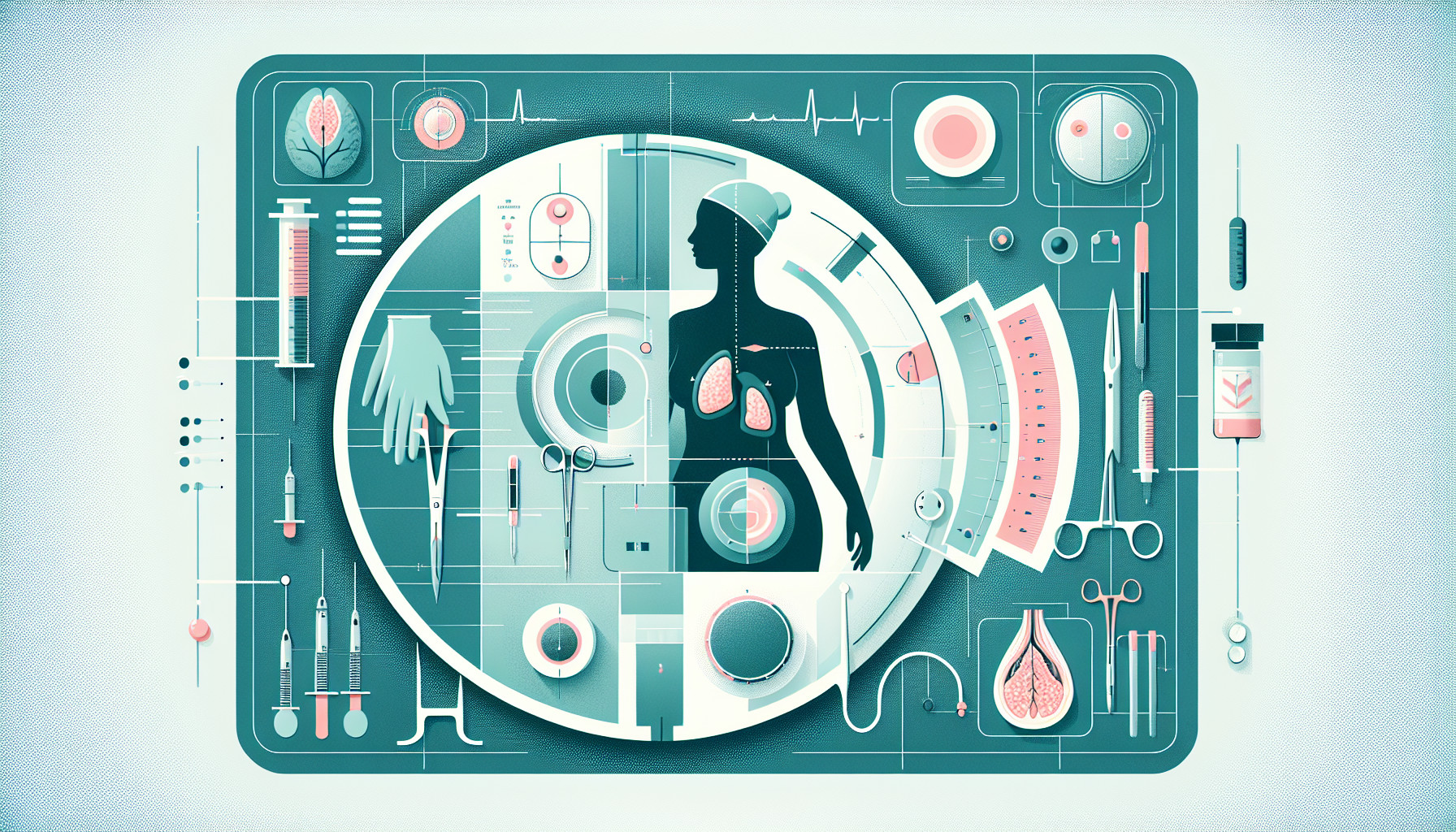Our Summary
This study looked at women with breast cancer to see whether they were more likely to become depressed after having their breast(s) removed (a mastectomy) or after having their breast(s) reconstructed. The researchers looked at studies published between 2000 and 2019 and found that women who had a mastectomy were more likely to be depressed (22.2% chance) compared to those who had breast reconstruction (15.7% chance). The researchers also found that women who waited to have their breast(s) reconstructed were less likely to be depressed. The study suggests that knowing this information could help doctors create better treatment plans to help prevent depression in these women. They also found that certain tests (like the Beck Depression Inventory and the Hospital Anxiety Depression Scale) were good at spotting depression in these women.
FAQs
- What was the main focus of the study on women with breast cancer?
- What was the difference in depression rates between women who had a mastectomy and those who had their breasts reconstructed?
- How can the findings of this study help in creating better treatment plans for women with breast cancer?
Doctor’s Tip
One helpful tip a doctor might tell a patient about mastectomy is to consider the timing of breast reconstruction and to discuss with their healthcare team the potential impact on their emotional well-being. Waiting to have breast reconstruction done may reduce the likelihood of experiencing depression after a mastectomy. Additionally, being aware of the signs of depression and discussing any concerns with their healthcare provider can help in early detection and management of depression in these women.
Suitable For
Patients who are typically recommended mastectomy include:
- Women with early-stage breast cancer who are not candidates for breast-conserving surgery (lumpectomy).
- Women with a high risk of developing breast cancer, such as those with a strong family history of the disease or carrying certain genetic mutations like BRCA1 or BRCA2.
- Women with large or multiple tumors in the breast.
- Women with inflammatory breast cancer or Paget’s disease of the breast.
- Women who have previously undergone radiation therapy to the breast and are now diagnosed with a new breast cancer.
- Women with a recurrence of breast cancer after previous treatment with breast-conserving surgery.
Timeline
Before mastectomy:
- Diagnosis of breast cancer
- Discussion with healthcare provider about treatment options
- Decision to undergo mastectomy
- Pre-operative preparation, including medical tests and consultations with surgical team
After mastectomy:
- Surgical procedure to remove the affected breast(s)
- Recovery period, which may include pain management and physical therapy
- Emotional adjustment to changes in body image and self-esteem
- Follow-up appointments with healthcare provider to monitor healing and discuss further treatment options
After breast reconstruction:
- Decision to undergo breast reconstruction
- Surgical procedure to reconstruct the breast(s)
- Recovery period, similar to after mastectomy
- Adjustment to new breast(s) and potential changes in body image
- Follow-up appointments with healthcare provider to monitor healing and address any concerns
Overall, the process of undergoing a mastectomy and potentially breast reconstruction can be emotionally and physically challenging for patients. It is important for healthcare providers to provide support and resources to help patients cope with the changes and prevent or address any feelings of depression that may arise.
What to Ask Your Doctor
- What are the different options for mastectomy, including breast reconstruction, and how do they affect the risk of depression?
- How long can I wait to have breast reconstruction after a mastectomy to reduce the risk of depression?
- Are there any specific factors or characteristics that may make me more susceptible to depression following a mastectomy?
- What are the signs and symptoms of depression that I should be aware of after a mastectomy?
- What types of psychological support or counseling services are available to help me cope with any feelings of depression or anxiety after the surgery?
- Are there any medications or treatments that can help prevent or manage depression following a mastectomy?
- How often should I be monitored for signs of depression during the recovery process?
- Are there any lifestyle changes or self-care strategies that can help improve my mental well-being after a mastectomy?
- What are the potential long-term effects of depression following a mastectomy, and how can they be managed or treated?
- Are there any support groups or resources available for women who have experienced depression after a mastectomy?
Reference
Authors: Padmalatha S, Tsai YT, Ku HC, Wu YL, Yu T, Fang SY, Ko NY. Journal: Clin Breast Cancer. 2021 Oct;21(5):e526-e538. doi: 10.1016/j.clbc.2021.01.003. Epub 2021 Jan 7. PMID: 33541834
